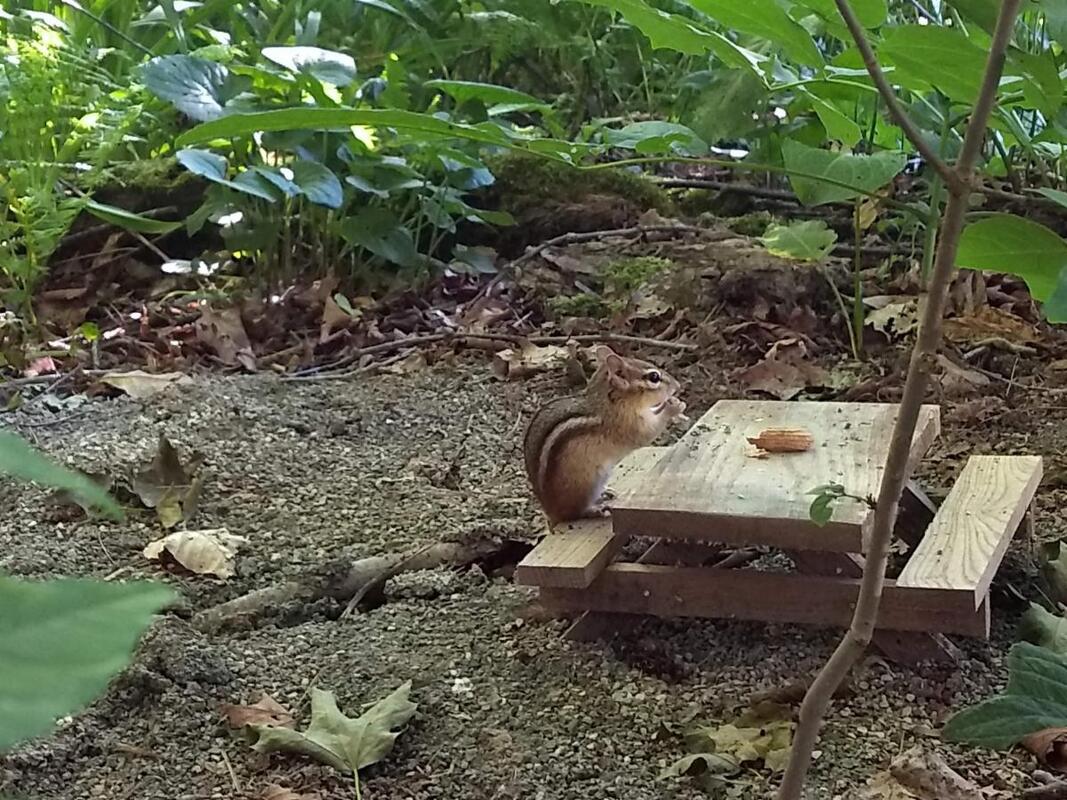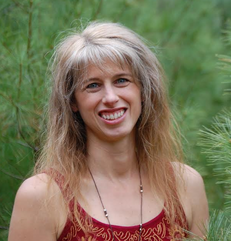|
My daily meditation time is rarely quiet. I sit outdoors at the edge of the woods and seek stillness while listening to chipmunks. The eastern chipmunk (Tamias striatus) is a rodent in the family Sciuridae (squirrel) and is found in the eastern half of the United States and southern Canada. “Chipmunk” is an adaptation of their name in Ojibwe, one of the indigenous languages of the Algonquins, which means, “descends trees headlong,” as chipmunks and other squirrels are apt to do. Unlike tree squirrels, however, chipmunks spend most of their time on the ground and live in burrows. The land near where I sit has many holes, each belonging to a different chipmunk. Chipmunks are solitary creatures and vigorously defend their territories, so each tunnel heads off in a different direction. I often witness one chipmunk chasing another and hear a quick chorus of trills and squeals that identifies a territorial dispute. Despite this, chipmunks are community minded when a predator shows up. Instead of a safer silent retreat, a pursued chipmunk lets out a trill while running to warn the others. When there is danger, the chipmunks are usually the first to sound the alarm. A rapid chuck-chuck-chuck warns of a predator above, such as a hawk. A slower chip-chip indicates the danger is on the ground, perhaps a fox. Once one starts, other chipmunks join in, spreading the warning through the woods. The squirrels and birds listen, too. Soon red squirrels are chattering, and grey squirrels are barking from the safety of the trees. Fading blue jay caws indicate their retreat. Species normally squabbling over food and space, work together to spread the word. While I have no fear of hawks or foxes, listening to the chipmunks helps me tune into the activity in the woods and reminds me to engage in active listening throughout my day. Most humans rely heavily on their visual sense, but I have found that to feel part of all life around me, it requires more than just observation. To practice this in human conversation, I close my eyes against the visual distractions and hear both the words being spoken and the emotional tone. Actively listening provides deeper connection and understanding. When Lori Ferry’ and I, the HEARTH project co-directors, expanded the virtual circles to monthly offerings, I was glad we stayed with an audio-only format. Without needing to worry about what you would see, we could put all our attention on the words. When others facilitate, I close my eyes, listen deeply, and drop into the experience, feeling as much a part of our global OMEC community as I feel part of the natural world that includes the chipmunks. I invite you to explore the programs offered through the Olympic Mountain EarthWisdom Circle (OMEC). Each of these programs encourage a sacred and responsible relationship with the Earth, supporting us to move wakefully through personal and planetary change.
Blessings, Debbie Philp OMEC Board Member |
Details
Archives
June 2024
Categories |



 RSS Feed
RSS Feed
